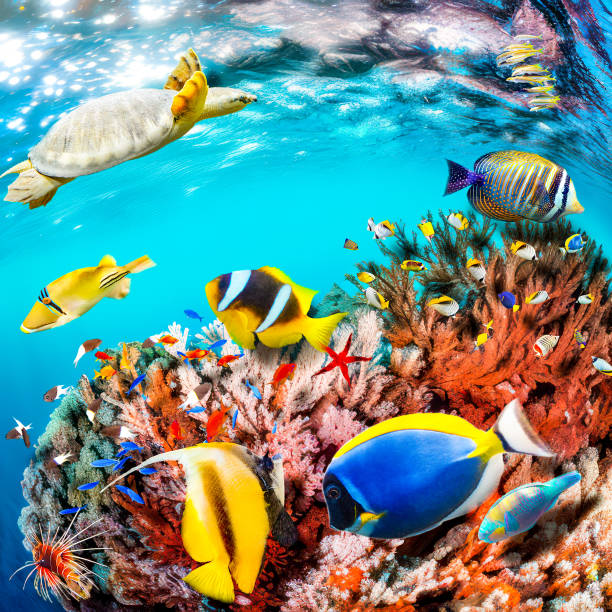For avid aquarium enthusiasts, creating a reef aquarium is a captivating way to replicate the stunning beauty and biodiversity of natural coral reefs within the confines of one’s home. In this article, we will explore the world of reef aquariums, discussing the key elements involved in setting up and maintaining these miniature underwater ecosystems, as well as the challenges and rewards they offer to hobbyists.
Setting Up a Reef Aquarium:
Creating a thriving reef aquarium requires careful planning and consideration of various factors. First and foremost, selecting an appropriate aquarium size is crucial, as larger tanks generally provide more stability and space for diverse coral and fish species. The choice of lighting is equally important, as corals depend on specific wavelengths of light for photosynthesis. High-quality filtration systems, adequate water circulation, and stable water parameters are essential components to ensure a healthy and balanced environment for the reef inhabitants.
Coral and Fish Selection:
One of the most exciting aspects of reef aquariums is the ability to curate a diverse array of corals and fish species. Soft corals, hard corals, and anemones can be carefully selected to create a visually stunning and dynamic reef structure. Likewise, choosing compatible fish species adds another layer of complexity and beauty to the aquarium. However, it’s crucial to research and select species that are compatible with each other and can thrive in the conditions provided by the aquarium setup.
Challenges and Maintenance:
Maintaining a reef aquarium comes with its set of challenges. Regular monitoring of water parameters, including temperature, salinity, and nutrient levels, is essential for the well-being of the corals and fish. Controlling algae growth, preventing disease outbreaks, and ensuring proper nutrient cycling are ongoing tasks that require attention to detail. Additionally, reef enthusiasts often face the delicate balance of providing optimal conditions for coral growth while minimizing the risk of overgrowth and competition for space.
Conservation-Minded Reef Keeping:
With increased awareness of the environmental threats faced by natural coral reefs, many reef aquarium hobbyists are adopting conservation-minded practices. Sustainable sourcing of corals and fish, avoiding wild-caught specimens, and participating in coral propagation and breeding programs contribute to responsible reef keeping. Additionally, staying informed about global coral reef conservation efforts and supporting initiatives that promote reef health are ways in which hobbyists can make a positive impact.
Conclusion:
Reef aquariums offer a unique and rewarding way for enthusiasts to connect with the mesmerizing beauty of coral reefs on a more intimate scale. As guardians of these miniature ecosystems, hobbyists play a crucial role in promoting responsible reef keeping and contributing to the preservation of coral reefs worldwide. With proper knowledge, dedication, and a passion for marine life, reef aquariums can become showcases of the wonders found in the underwater world, fostering a deep appreciation for the fragility and importance of coral ecosystems.





